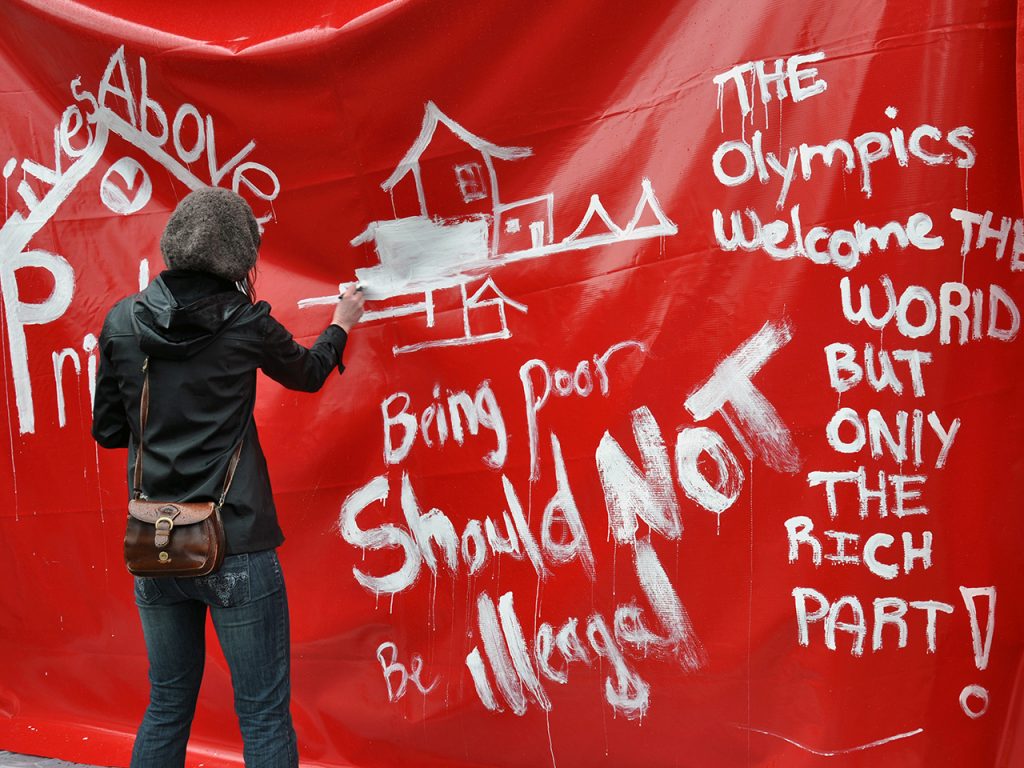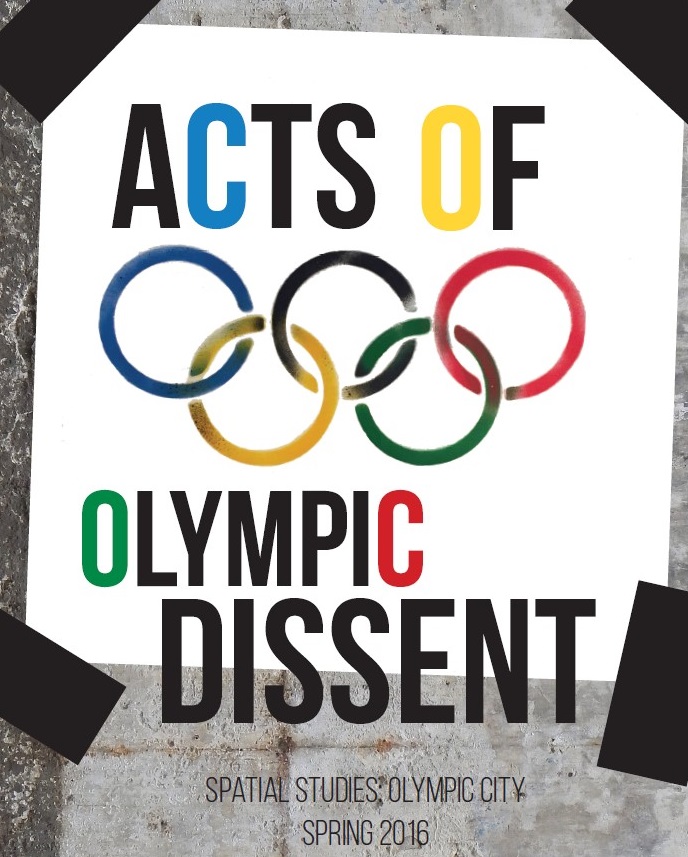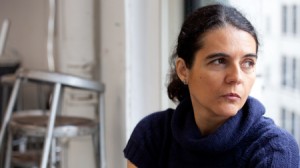Associate Professor of Spatial Design Studies Jilly Traganou won the Design Incubation Communication Design Educators Award in the category of Scholarship for her research in the graphic design histories of the Olympics. The material awarded came from her recent book Designing the Olympics: Representation, Participation, Contestation (Routledge, 2016)—specifically the chapters on graphic design, which deal with issues such as how the design program for the 1964 Tokyo Games helped shape Japan’s post-war identity, London 2012’s foray into making the public a part of the design process, and ways political groups appropriate official Olympic images as a form of dissent.
Posts Tagged ‘olympics’
Student Publication – Acts of Olympic Dissent
The Olympics have had a long history of contestation from their host cities, marginalized groups threatened by gentrification, and even the athletes who perform on the world’s greatest stage. In the wake of the Rio 2016 Games, students in Jilly Traganou’s Spatial Studies course, which focused on Olympic cities, self-published a collection of papers under the title Acts of Olympic Dissent, exploring the topic at hand. (more…)
Jilly Traganou Awarded Prestigious Grant from Design History Society
The School of ADHT is proud to announce that this past March, Jilly Traganou received a Design History Society grant in support of her book publication Designing the Olympics. Designing the Olympics looks at the “Olympic Design Milieu” to ask questions on the relations of design with national identity and citizenship. The book is based on an understanding of Olympic design from 1896 to our days, and focuses on the period from post-WWII to the present. It looks at Olympic design in different geographical and political contexts: the graphic design program for Tokyo 1964, spatial planning for Athens 2004, brand design for London 2012, and a broader analysis of material practice of Olympic dissent in the context of the Mexico 1968, Vancouver 2010, and London 2012 Olympics.
For Traganou, the Olympics is an important nexus where material culture becomes a vehicle for the development of new national values and forms of citizenship. Using primary research material collected in archives (Olympic Museums of Lausanne, Tokyo and Sarajevo, online databases of newspapers and other institutions), and through interviews with designers and other Olympic constituents, she hopes to use the grant for the compilation of the book’s index.
Original post from Insights.



